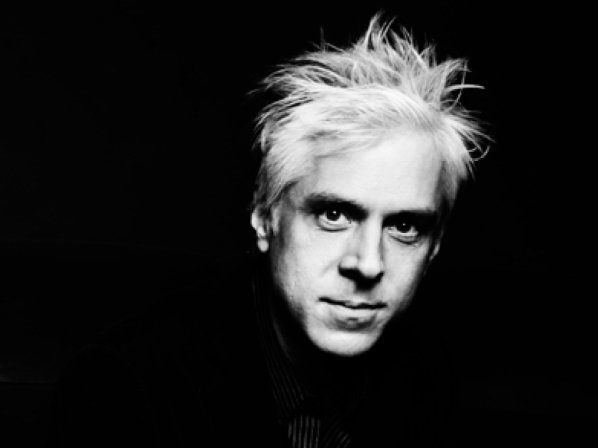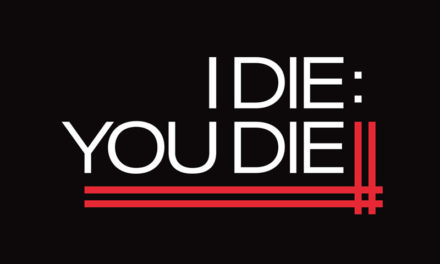The current situation got us thinking about bringing some outside voices into the ID:UD mix, with some special one-off pieces as part of our dormant Outland series. The first of these comes from Ned Raggett. Ned’s work at Allmusic, reviewing countless core goth and industrial records amongst others, was a key factor in the shaping of our tastes, and he was one of the very first guests on We Have A Technical. Ned’s writing can regularly be found at Bandcamp, The Quietus, and at KQED Arts & Culture.

Bill Rieflin
Four years earlier I wrote a piece for Flavorwire — no longer available, and no need to revive it or reshare it — explaining why serenity and silence was arguably my preferred mode of listening at that moment. Not solely and not always, I’ll quickly note, and I’m not telling anyone that is the only way they should be listening, which is ridiculous. But as I stated in that piece, rather than looking for music that was matching my general political mood — namely, angry and frustrated at the state of the world, which of course hasn’t changed since, but rather grown more sharp — I preferred listening to things that would not simply reflect those moods back at me.
This hasn’t changed much, honestly, in these last four years. My assumption that whatever happened in 2016 would mean that others would more meaningfully suffer before I did has remained obnoxiously but unavoidably true and even now that’s true, in this strange suspended-in-air situation we now all find ourselves in, compounded by whatever concrete steps or prime foolishness we find to hand as a result, depending on the relevant local and government leaders you’re either lucky to have or alternately plagued with. So far in terms of health and livelihood, at least, I am fortunate, but again, so far.
So back to music — if I had been essentially juicing myself up with electronic aggression, to address what I Die: You Die can be partially known for, I would have burned out long ago. Variety is key but in ways it’s been memories of the past that provided concrete fuel rather than the here and now of the field. In thinking back I’m not surprised, for example, that over the past few years those shows I’ve attended — and doesn’t that already seem like a long-ago concept — which could generally fall into ID:YD territory included Nitzer Ebb’s reunion run last year, VNV Nation for Noire, even the scabrous and still-underrated power of Lesley Rankine’s Ruby. Nostalgia, to one degree or another, rather than the cutting edge of the field.
Part of this is my own age — less than a year to go until I hit fifty, fate willing — but also sublimation, a realization that certain itches have been, if not well and thoroughly scratched, incorporated into what I do on a broad level, in terms of mindset and resultant conclusions. Broadening away from an in-your-face electronic punch, seeing Depeche Mode in 2017 from a close-up set on the floor wasn’t a necessity, that was me going “You know I’ve been seeing these guys consistently for about thirty years, be nice to actually be able to SEE them up close” (and I did, and it was great). Seeing NIN on their 2018 tour was me going “Hm, I can just take a bus up there and see what’s going on again with them,” with thoughts of seeing them at points all the way back to 1991 in my head. Heck, seeing New Order and Pet Shop Boys in September — hopefully — is essentially me going “Well I saw the first one thirty-one years back and finally the second one four years back, yeah why not?” (And then there’s Kraftwerk but then again, there’s always that strange mystery of a group.)
It is weird to think of any of this music as ‘ambient’ though of course many of these acts have explored this territory in their own fashion. But it’s a mental ambiance, an easy comfort. Stepping back towards the first group of acts, once again hearing Douglas McCarthy sing/yell “You are young, they are old, CONTROL is all they’ve GOT to GIVE!” is a definite thrill still but…I’m getting to the ‘they’ part pretty rapidly if I’m not there already. Arguably it’s the Who/”My Generation” situation once more, but it’s also a reminder that I can’t solely dwell in past easy frameworks of mind. Arguably this where quieter and more contemplative listening helps since my mind can drift and not lock into exactly where a focused dominance in sound and/or lyrical message is, to articulate my own thoughts.
Yet the spark still kicks. Bill Rieflin’s death the other week led me to think on, among his many other notable performances, the ridiculously powerful kick of “Burning Inside,” which threw my head against the wall mentally when I first heard in fall 1989. I take little now from the performative nature of Al J.’s lyrics, but I appreciate, still, the inchoate sense of sheer rage tempered by the live-wire frazzle of the performance, at once structured and seemingly about to collapse. The burning may be a quiet seethe now, but it seems we all burn now, inside or out.



